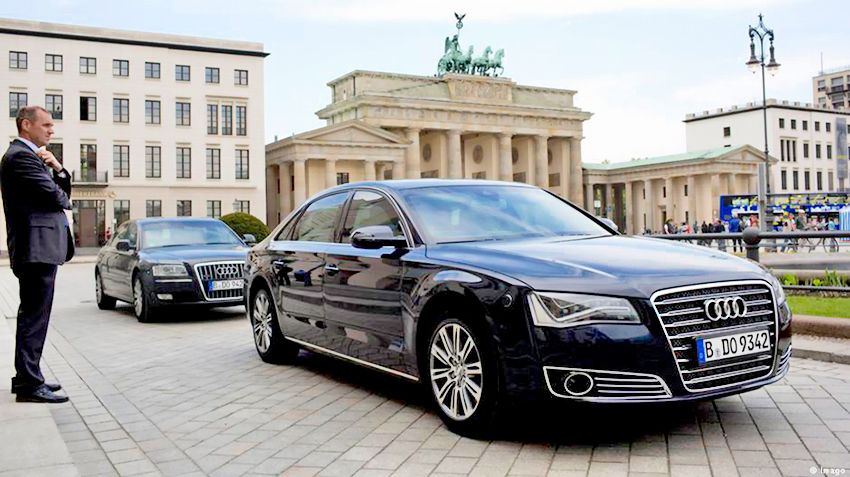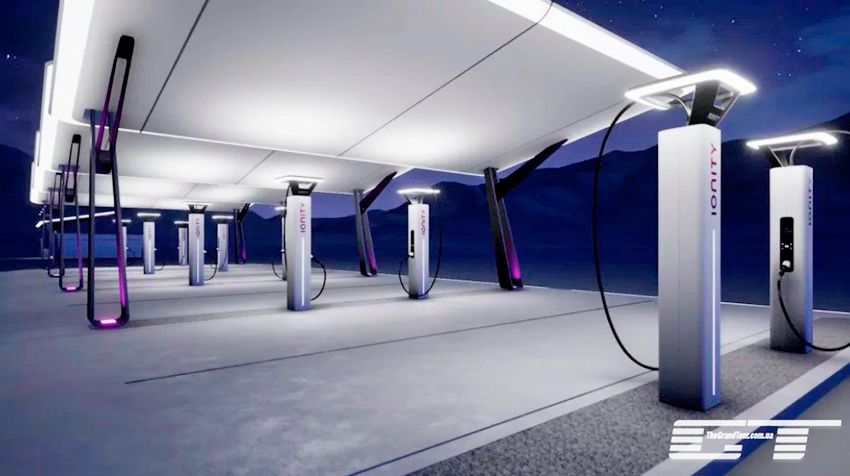Germany gives green light to fleet sales of electric cars and hybrids

9 August 2018
In Germany intend to halve the tax on utility vehicles and hybrids
The Federal government offers businesses to save on taxes by transplanting on rechargeable hybrids and electric vehicles. While existing costimulatory sales of electric vehicles have shown the effectiveness of the proverb: the mountain gave birth to mouse.
The German government in early August, took the decision to reduce by one-half the tax rate on official cars with electric and hybrid engines. This measure applies to vehicles that are purchased over the next three years, from 1 January 2019 to late 2021.
Complex arithmetic official cars in Germany
Another measure of the German government to support passenger cars on electricity emphasizes its commitment to accelerate the dissemination of this environmentally friendly mode of transport. However, the same as is said and the actual failure of previous measures to stimulate demand for electric vehicles.
Not surprisingly in this vein, the desire of Berlin to benefit perhaps the most effective segment of the German car market – official vehicles. Moreover, service vehicles Federal-and state officials, this measure will affect not in too large a measure, but for users the main mass of official cars owned by private companies this benefit may be significant.
Every year German companies of different calibers acquire about 800 thousand cars, which then (without driver) available to the senior management and sometimes middle management, and employees are forced to travel frequently to customers. Moreover, in those frequent cases, when firms allow their employees to use their assigned official cars for personal purposes, thoroughly controlling nalogoplatelshiki database of the German fiscal authorities require the payment of the corresponding tax on the basis that such a privilege for the employee actually means extra income.
So every month the user gets a company car to the amount of income from which pays taxes, the additive in the form of 1% the list price of the car. When the cost of the machine, for example, €60 000, which means an increase of €600 a month. Thus, at the end of the year tax base of the employee is increased by €7200, for loving to read each of pfening burghers fairly substantial sum.
to Kill two birds with one stone: to improve the environment and to support the auto industry
Exactly this tax rate will be reduced from 1 January next year by half, to 0.5%, which will allow the user to service electric or hybrid worth €60 000 to add to the tax base only €300 Euro per month or €3,600 per annum.
It follows that in addition to the task of accelerating the implementation of electric vehicles the government of Bundesrepublik pursuing and passing the task of supporting the domestic automakers in their time of restructuring of the production for the electric drive. That is quite natural, since in Germany the majority of firms as company cars often use the premium models, just acting specialist program leading German manufacturers in the face of the brands Audi, BMW, Mercedes-Benz and Porsche.
Since all of these manufacturers in the next two to three years are determined to begin mass production of the widest range of new models with electric or hybrid engines, but fear for their income, since for individuals their model, at least with an electric, even with a hybrid drive would be too expensive. Hence the emphasis initially will be on a purchase or lease that is legal entities that have matching funds and special interest: the ability to write off the purchase of motor vehicles from taxes as operating expenses.
Again deuce
However, the attempt of Berlin to bring the benefits of top managers of the German business to make a choice in favor of company cars with electric drive, at least in hybrid version with the frankly low headroom electric vessel, was subjected to strong criticism from expert circles and the German media.
So, Director of the Center for automotive research CAR University Duisburg-Essen Professor Ferdinand Dudenhoeffer expressed in that spirit that the decision of the government the most it will support hybrids, which for the time being more likely to work on the internal combustion engine than the electric motor, so to improve the urban environment, it will be that dead a poultice.
Moreover, the Professor believes, from benefits are more likely to benefit the American electric car manufacturer Tesla than its German manufacturers. And, here the state will collect far less tax. According to the newspaper Volksstimme, the Treasury will be reduced over three years to about €2 billion. Speaking critically about such "hidden subsidies" of the German automakers, the publication offers an alternative: "the most Important thing for a functioning and attractive electromobility would now be generous investment in the necessary infrastructure. Otherwise, the gift tax will be cheap cosmetics". In turn, Professor Dudenhoeffer, citing statistics according to which in Germany today, more than half of company cars run on diesel, proposes to cancel tax benefits for such vehicles.
German burghers prefer the freedom of movement ecology
Launched two years ago large-scale three-year program of subsidizing buyers (prize of €4000 when you purchase a pure electric vehicle and €3000 for a rechargeable from the mains PHEV) by July 1, 2018 yielded very modest results.
Over the past two-thirds of the planned time allocated for subsidies of €600 million has been paid only €100 million, as a result, instead of the planned 300,000 electric and hybrid cars in the state was bought only 66 000.
That is significant: most of the applications have been exhibited by legal persons purchasing electric vehicles for official purposes. This group is from 1 January next year will have additional tax incentive.
Will whee if the sales of electric cars in Germany this benefit is not yet clear. Judging by the polls, the main argument against the purchase of electric vehicles is not even that they are expensive and not relatively small range, and the lack of infrastructure for recharging.

However, there has been a positive move. So, at the end of June created last year, the company Ionity, which is a JV carmakers Daimler, BMW, Audi, Porsche and Ford has finally commissioned its first terminal with six posts for speed (20-30 min) electric vehicle charging, and by the end of this year, such a terminal is 100-150, but in 2020 the number of such charging stations along major highways 24 European countries should reach 400.
Fortunately this is not the only investor in Germany and in the EU, which is embedded in the accelerated development of infrastructure for high-speed and standard electric vehicle charging.
In the first quarter of 2018 Germany finally for the first time surpassed Norway in sales of hybrids and electric cars with 17 574 units sold passenger cars with electric drive, and, in just a year, this figure jumped to 70%.
In addition, in Germany, planned to build a major European capacity for the production of batteries for electric vehicles. So, just over a month in Germany announced the construction of three new factories for the production of batteries. All in all, today announced six production sites in Germany who intend to build both local and Chinese companies..
|
|
|
Element was not found.








